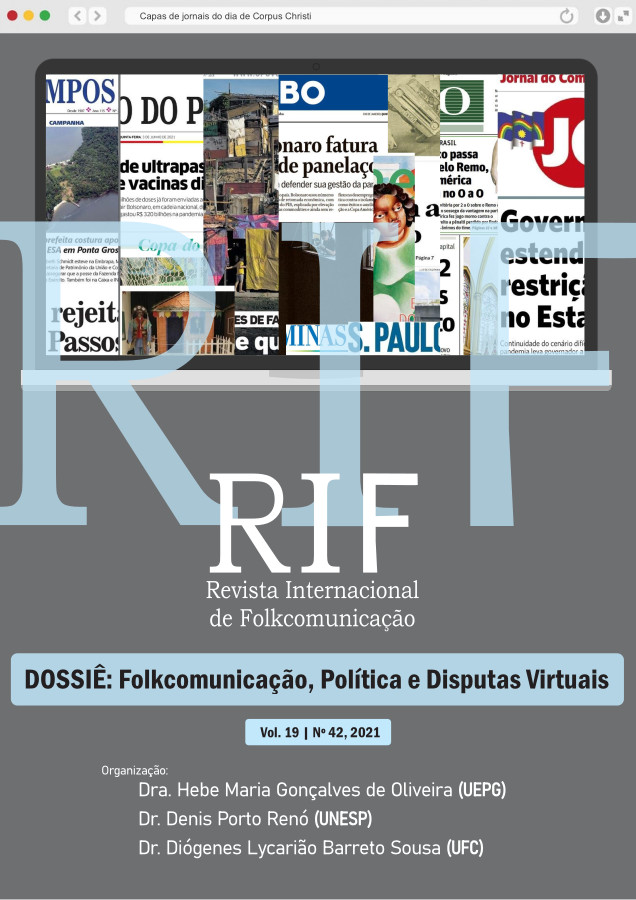From ‘play’ to political discourse: the propagandistic nature of stickers on Whatsapp
DOI:
https://doi.org/10.5212/RIF.v.19.i42.0008Abstract
Stickers can be defined as sticker, label and sticker. Very similar to traditional gifs and emoticons, in digital conversations, stickers have suppressed the use of words and images. Because they are polysemic, they can be used in different situations of interaction, which gives a more fun tone to the subject to which they refer. This linguistic situation is what Discourse Analysis defines as a discursive slide. That is, through incursive and discursive ellipses there is a rupture in the linearity of the original discourse. In the case of politics, however, even if a new meaning is constructed, the propagandistic character of the stickers remains. Through exploratory and empirical research, the aim of this study is to understand the slippage of meaning in political discourses for stickers. For that, as the main theoretical-methodological support, the Discourse Analysis proposal developed by Patrick Charaudeau was used. In particular, through two modalities of construction and organization of discourse: the descriptive organization mode and the argumentative organization mode. In its linguistic components, the descriptive and the argumentative modes have the procedures of naming, qualifying, situating and locating the starting, passing and arriving assertions, which are important in our investigation and for the understanding of discursive slips and new meanings. produced. As a research corpus, four stickers published on Whatsapp in 2020 were chosen. The selection criterion was that of convenience, as there are no specific criteria that should be considered when choosing the sample. Discourse; persuasion; stickers; Whatsapp.
Downloads
Additional Files
Published
How to Cite
Issue
Section
License

Este obra está licenciado com uma Licença Creative Commons Atribuição 4.0 Internacional.
Os autores são responsáveis, em qualquer que seja o formato do texto, pelas opiniões expressas ou indiretas presentes em seus respectivos trabalhos, não endossáveis pelo Conselho Editorial e pelos editores da Revista, bem como pela autenticidade do trabalho. Ao publicar trabalhos na Revista Internacional de Folkcomunicação, os autores cedem automaticamente os direitos autorais à publicação para veiculação das produções acadêmicas, sem ônus para a Revista. Os autores detêm os direitos autorais do texto para o caso de publicações posteriores e concedem à Revista Internacional de Folkcomunicação o direito de primeira publicação, com o trabalho simultaneamente licenciado sob a Creative Commons Attribution License, que permite o compartilhamento do trabalho com reconhecimento da autoria e publicação inicial nesta Revista. Por serem publicados em revista de acesso livre, os artigos são de uso gratuito, com atribuições próprias, em atividades educacionais e não-comerciais, sendo permitida a publicação simultânea em repositórios institucionais.































